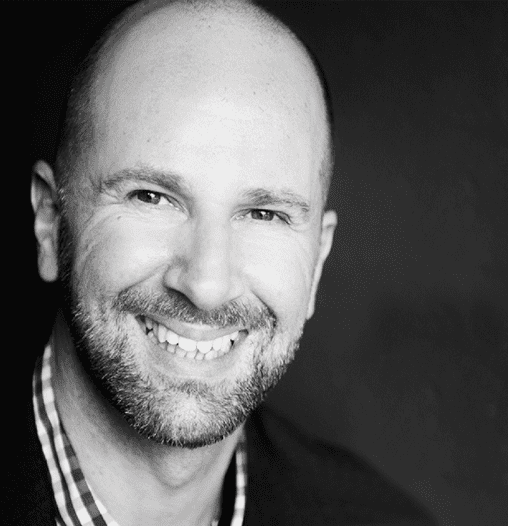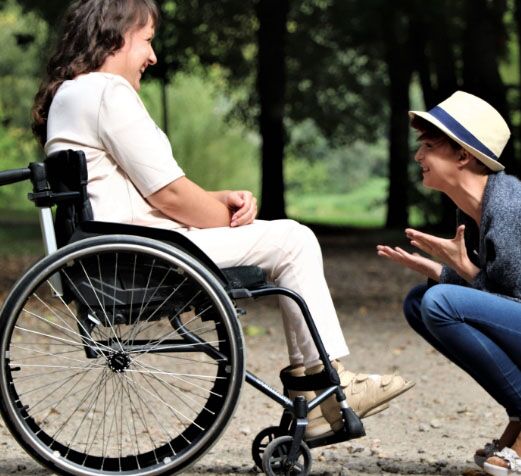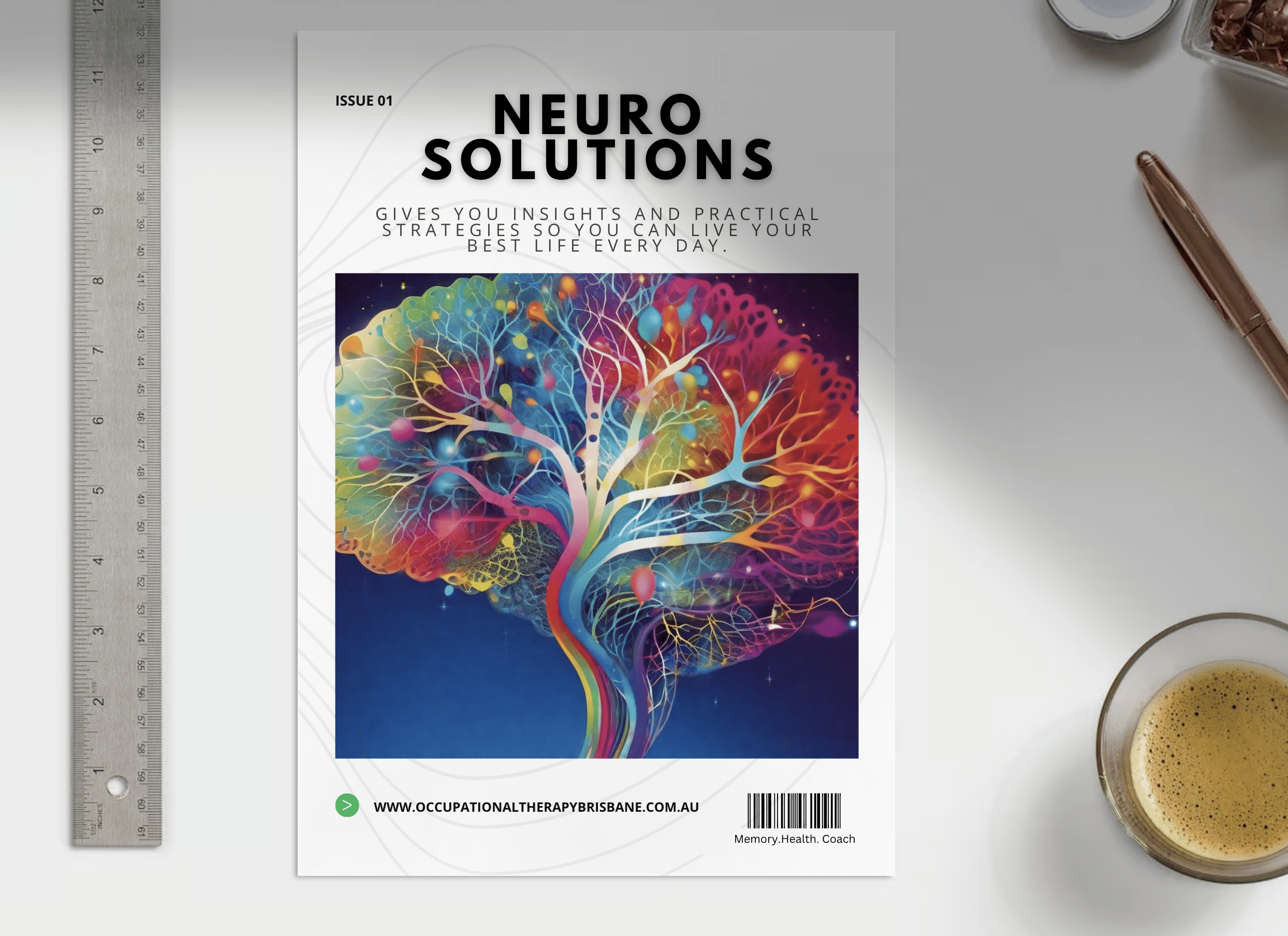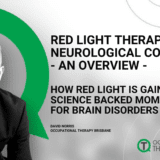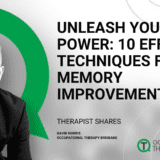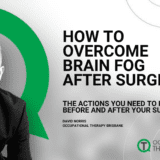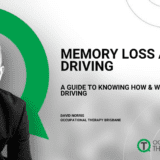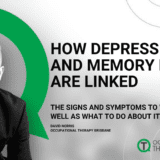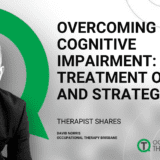For many stroke survivors, maybe much like you, the biggest battle they face, isn’t the stroke itself, more so the symptoms they live with and a major one is memory loss after stroke.
- How common is memory loss issues after a stroke and
- 6 ways to help improve memory performance after a stroke
- Plus more
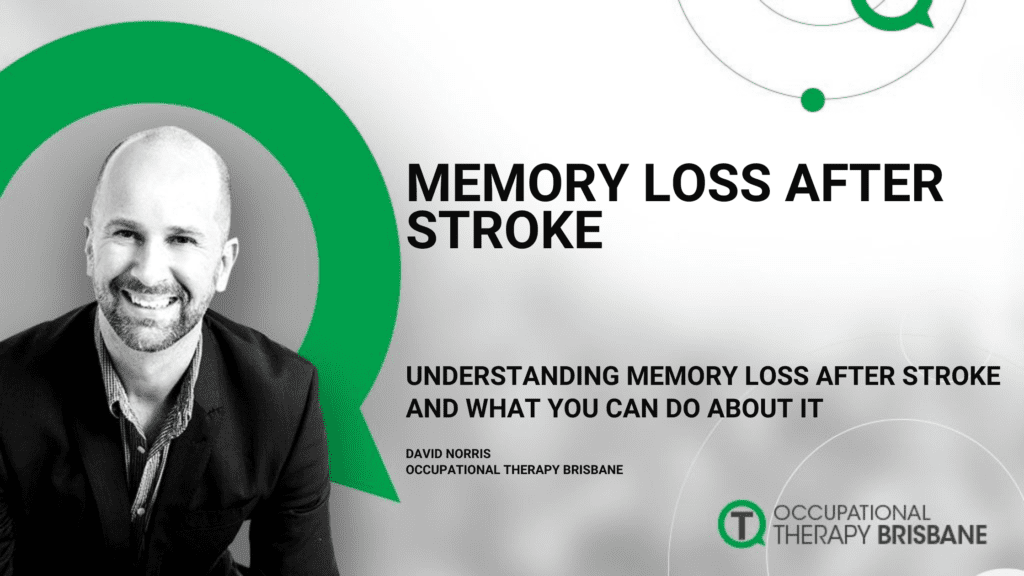

Here's 5 Activities To Help Your Memory After A Stroke.
FUN And Super Relevant For Stroke Survivors Over The Age of 50. Grab You Free Copy Now
It’s the comments “oh he seems fully recovered” which misses the under the skin memory issues that a person lives with. Let’s face it, most people think of a stroke as “can’t move an arm, talk or walk” symptoms and rarely do we think about the thinking changes that can happen.
The impact of this can white ant a person’s confidence to speak up about their challenges. On the other hand, loved ones or work colleagues get angry or upset at a person’s errors or performance difficulties not realising there is a host of changes that have rocked a person’s cognitive world.
So, yes we’ve seen our fair share of memory problems after a stroke are sadly it’s what we encounter frequently in our stroke rehabilitation clinic.

Is Memory Loss After A Stroke Common?
Memory changes after a stroke are more common than you’d likely think.
These can range from minor forgetfulness to severe impairment. While these memory lapses may seem harmless, they can cause serious problems if left untreated.
No doubt, everyone stroke is different. You might be surprised that it is quite common. A UK study reports that 77% of stroke survivors have problems with memory and nearly 50% of stroke survivors reported poor support for mental fatigue and memory.
An earlier systematic review of memory impairment after stroke estimated that between 23% and 55% of stroke survivors have memory impairment three months after stroke and between 11% and 31% a year after stroke (Snaphaan 2007).
In short, yes it’s more common than you would expect and sadly under recognised and treated.
The reason for this is many fold but our observation is that in the rehab and hospital setting it’s about getting people home, rather than “maximising cognitive health and getting people back into life”.
That’s where we’d like to help.

How Can A Stroke Cause Memory Loss?
Memory problems occur because of brain damage caused by a stroke. This type of injury can affect parts of the brain responsible for thinking, remembering, learning and communicating as well as the networks or information highways that share information related to memory.
Getting into more detail, your experience of memory loss after a stroke is governed by multiple factors:
- Previous memory loss or overall cognitive fitness before your stroke. Was there any previous changes? If so there may be an amplification effect of the recent stroke.
- Severity or scale of the stroke. Yes, memory loss after a stroke is common. If the stroke was mild, then memory loss may be temporary. However, if the stroke was moderate or severe, then memory loss could last for months, years or be permanent.
- The location of the stroke: As mentioned above, the location of the stroke may affect an area of the brain responsible for memory. For example a lacunar stroke. ( deep brain stroke) will have a different presentation than. say a stroke which has affected the temporal and parietal cortex ( outer layer) of the brain. Ss, depending on the location of the stroke may impact your cognitive function in certain ways.
Is There A Risk For Severe Memory Loss Or Dementia After A Stroke?
While most cases of dementia are caused by age-related conditions such as Alzheimer’s disease there is an elevated risk for stroke survivors compared to people who haven’t had a stroke.
Compared to the general population, the incidence of dementia is nearly 50 times higher in the year after a major stroke.
Source: Oxford Vascular Study (2019)
A previous systematic review by Savva and colleagues (2010) and colleagues concluded that stroke approximately doubles the risk of incident dementia in older adults.
Does Stroke Increase Risk For Vascular Dementia?
Vascular dementia refers to problems with thinking, planning, judgment, remembering and other cognitive functions caused by reduced blood flow to the brain. Vascular dementia doesn’t always occur after a stroke; however, if you’ve had a stroke, there’s a chance you may develop vascular dementia later on.
We’ve shared before on a number of articles what you can do to be living with brain health in mind. This. article covers 11 Heart Healthy Behaviours with Brain Health Benefits. We bring this to your attention as a number of large trials have shown that by tackling your personal risk factors you can reduce your likelihood for dementia.
If you’d like to reduce your risks for severe memory loss, it’s clear lifestyle factors play a big role. We are here to help people as much as possible on this journey and if you’d like that help, please contact us today.

Common Cognitive Changes After A Stroke
Common memory health complaints we’ll see in the memory health clinic include:
- inability to form new memories,
- difficulty remembering names,
- difficulty recalling places visited recently,
- and difficulties in planning future activities.
- brain fog or lack of clarity
Other complaints include inability to recognize familiar faces, difficulty with reading and problems with concentration and attention.
Common symptoms may be accompanied by confusion, anxiety, depression, irritability, sleep disturbance, and visual disturbances which can further add to a person’s sense of overwhelm and this is no doubt confronting in your recovery journey.
We see that there needs to be a real sense of urgency to help address the memory and thinking changes early rather than letting it go on.
Common Effects Of Stroke On Cognitive Function
You’ll likely hear different terms associated with memory function changes.
Orientation relates to knowing the time of day, place or location that a person is in for example. It’s often a recovery marker that is used in the early days of recovery.
Short term memory relates to the ability to remember information that happened a relatively short time ago.
Working memory refers to the ability to hold information in mind for very brief periods of time which is manipulated in the immediate context.
Declarative Memory can be divided into two types episodic and semantic memory
Episodic memory relates to information for events from your past experiences
Semantic memory is for stored information for facts about the world around us (knowledge)
Implicit Memory refers to information that we do not consciously remember but informs how we do activities like brushing our teeth

3 Common Types Of Strokes That Impact The Brain
There are three types of strokes that can cause memory loss.
The most common mechanism that causes a stroke is called an infarct. An infarct occurs when blood flow to a brain region is blocked for a prolonged period and as a result the brain tissue reliant on that blood, dies. Clot busting drugs have saved many people’s lives and prevented severe disability and as a result a person’s stroke may be transient like.
That’s awesome news, as early in David’s professional career these drug weren’t readily available and so he saw many people’s lives were lost or largely affected by significant disability.
The second type of stroke is referred to, as you might expect, as an ischaemic stroke. Ischaemia means that blood flow to tissues has decreased, resulting in hypoxia (insufficient oxygen) or a state of distress. Like a tap dripping rather than at full flow means that part of the brain is under served with nutrient rich blood. A person may see symptoms such as temporary memory loss as a result of this type of stroke.
The third type of stroke is called haemorrhagic. A hemorrhagic stroke occurs when a blood vessel bursts inside the brain. This results in large amount of pressure and the brain is pushed around.
What You Can Do To Help Support Your Memory After A Stroke
Fortunately, there are ways to improve memory after a stroke. One of those ways is through adaptation techniques. These exercises help stroke victims learn new skills and develop strategies for remembering information.
Memory Strategies and Adaptations
There are many different types of memory adaptation techniques available, including visual imagery, association, and memorisation tactics. The type of exercise you use depends on your needs and preferences.
Memorise
If you’d prefer to memorize any specific information, try chunking it or use association techniques. Chunking helps group or cluster information together such as ” themes” laundry items or if thinking about a series of numbers such as 4- 0-9 – 6 – 7. It much easier to group them as 40,967.
Visualise
If you’re not memorising then visualization involves imagining yourself performing a task, such as walking down a street, talking with a friend, or doing tasks. This helps you practice the steps involved in completing the task. You can do this in forwards motion (sequence) or reversing the sequence to help challenge the visualisation.
Association Techniques
Association on the other hand is joining information together. Popular strategies are the memory palace for example or building a story with the information where you are linking the information you want to remember with an object. This is especially helpful in remembering episodic information. Let’s take visiting the doctors. If you want to remember information from your meeting with the doctor and you may associate a piece of information with say, the stethoscope. This type of association places you within the doctors practice and links information with an object. The more personalised an association the more likely it is to be effective.
Cognitive Rehabilitation Exercises
Finally, there are targeted cognitive exercises. Cognitive rehabilitation therapy includes exercises designed to help patients learn new strategies for remembering information or target the skills that are damaged from the stroke. These exercises can be effective but they require repetition.
Whilst the experience of rehabilitation isn’t a journey people choose for themselves we do try to help people find an emotional ease with it. Beyond that if we can make it fun, that appears to be a positive ingredient for cognitive rehabilitation.
Have Fun
So, don’t forget to have fun. Games are great because they involve interacting with others. You may play them alone or with friends or family members. Some examples include crossword puzzles, Sudoku, Scrabble, and Trivial Pursuit. Your therapist should help you choose games or modify them so that they are helpful and not a source of frustration and designed with a goal in mind.
All of these methods may help with improving your memory after a stroke. However, some people find that only one method works best for them.
So experiment until you find what works best for you and of course getting clear on what may be the best one for you is where a therapist may help.

How Long Does It Take For Cognitive Impairment To Recover After A Stroke
It’s clear a stroke affects how your brain works and for even a minor stroke a person can have ongoing memory and thinking changes that may get in the way of your life.
A stroke. no doubt comes in many forms and each one will impact a person differently. Some people experience cognitive impairment and memory dysfunction while others don’t.
In 2020, Aam and colleagues found that cognitive impairment is common for all stroke types both early and long-term after a stroke.
They noted in their study that executive function and language did improve over time in their sample of people but there are many cognitive domains where little improvement was noted.
Their findings add further weight to personalizing rehabilitation to cater for cognitive remediation and ensuring people receive best clinical therapy to maximise their likelihood to achieve their recovery goals.
Our opinion is that cognitive remediation falls far too short for stroke survivors and remains a big life issue.
It doesn’t need to be this way and we’d like to help.

Memory Health Clinic To Help Support Your Stroke Recovery
Frequent and consistent access to cognitive rehabilitation and support is our vision for people.
You can expect on your first consultation a cognitive assessment to help identify your current strengths and challenges and map our where we can start to improve your daily functioning.
To arrange an initial occupational therapist assessment, please call 1300 783 200 or simple get connected by selecting the right option below.
